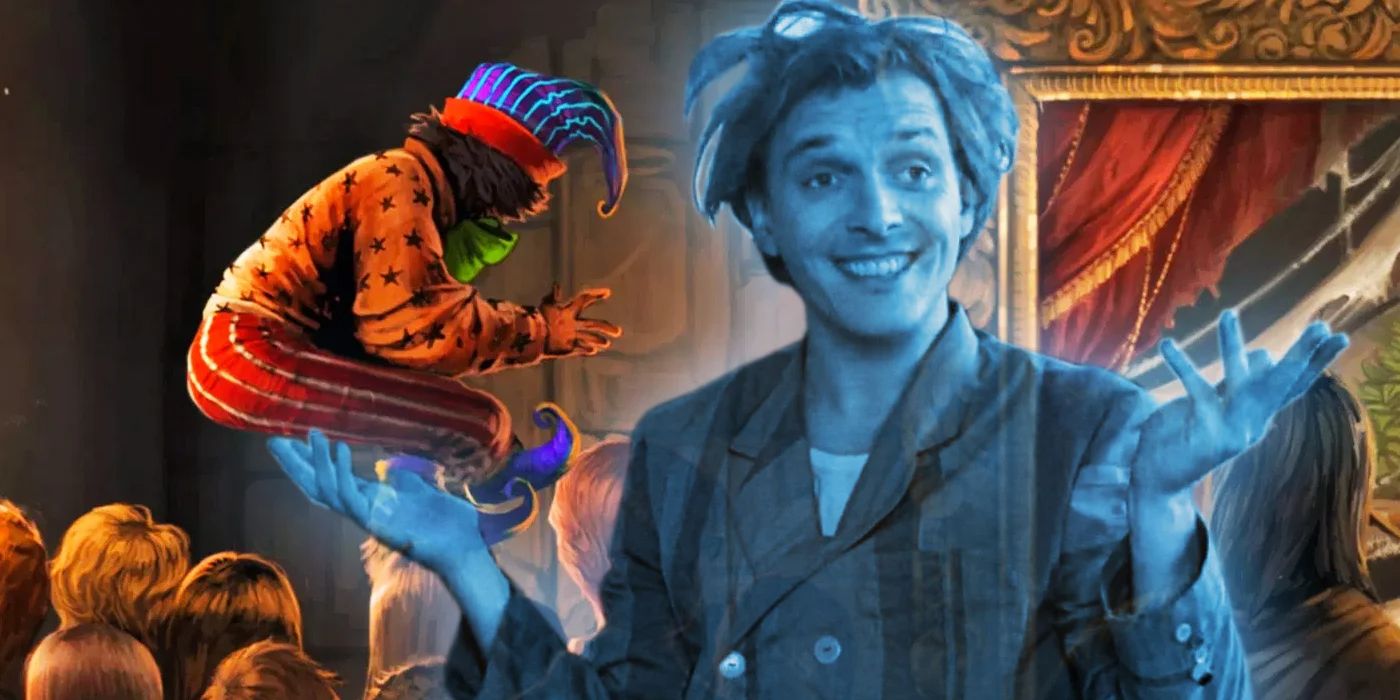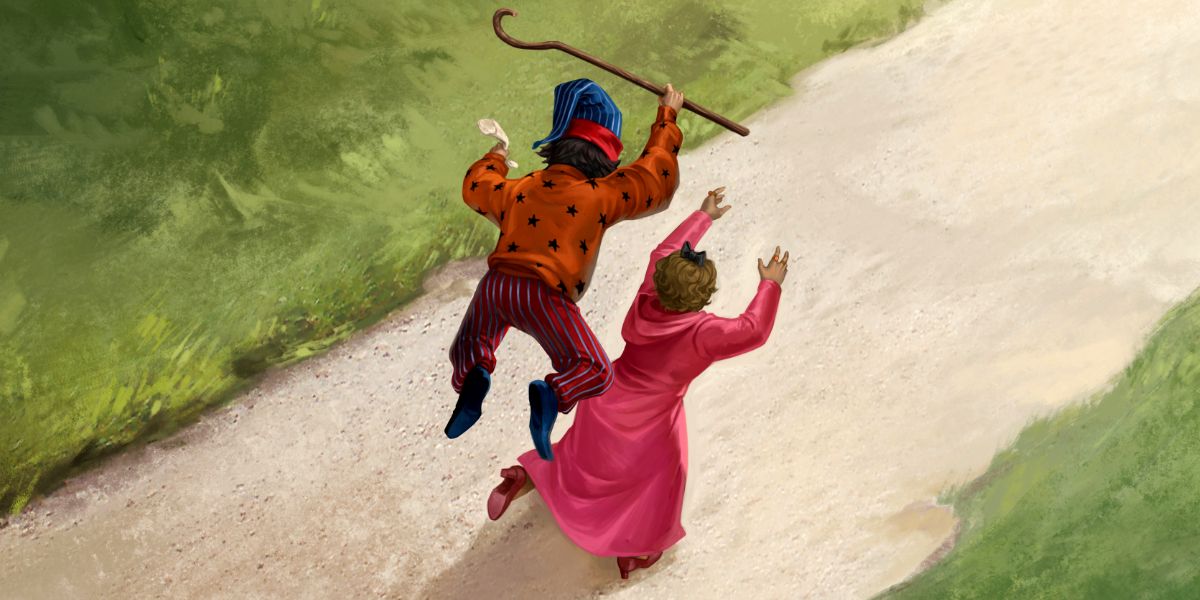The Harry Potter universe is full of wondrous and fascinating magical creatures and beings, many of which have received the silver screen treatment in either the original franchise or the Fantastic Beasts films. However, there is one interesting character who was completely omitted from the movies: Peeves, the Hogwarts Poltergeist.
Peeves the Poltergeist is an equally humorous and malicious entity that has lived in the Hogwarts castle since the school's founding in the year 993. He is known for tormenting students and especially the castle's caretakers in a variety of different ways that range from literally threatening the lives of children with miniature canons and crossbows, to blowing raspberries and making silly jokes.
A Poltergeist is not the same as a ghost. Hogwarts' many ghosts have varied relationships with him. The Bloody Baron is the only being Peeves has ever listened to or respected, likely out of fear of the blood-soaked and menacing specter. Over the course of the series, The Fat Friar has suggested the ghosts grant Peeves some leniency and allow him to participate in school events like feasts. He is always outvoted in this regard.
Peeves' opaque form can interact with objects, unlike the ghosts of the castle. He uses this ability to throw things at people and write rude words on classroom chalkboards. He has mischievous orange eyes and he wears a silly bow tie and a jester's hat on top of his jet black hair. A bright and vivid being most of the time, he also has the ability to make himself invisible, doing so on several occasions in order to play a prank or joke on an unsuspecting Hogwarts resident.
British actor Rik Mayall was cast as Peeves and even shot a few scenes for the Harry Potter and the Sorcerer's Stone. In the end, all of his scenes were left on the cutting room floor and have not been publicly released. After being cut from the first film, Peeves never made a big-screen appearance despite his regular presence in the books.
In the first book, it was Peeves who nearly got Harry, Hermione, Ron, and Neville discovered by Filch after Malfoy tricked them into breaking curfew. In the second book, he was present at the Death Day Party, and discovered Harry over the body of a petrified Justin Finch-Fletchley.
In the third book, he explained to Dumbledore that Sirius Black had attacked the Fat Lady's portrait on Halloween to gain access to the dormitory. In the fourth book, Peeves has a less substantial role, but he is part of the reason Hermione discovers there are house-elves in the Hogwarts kitchen, leading to the creation of S.P.E.W.
The fifth book contains a few notable moments where he actually worked alongside the Hogwarts students. Peeves receives a parting request from the Weasley twins Fred and George to give Professor Umbridge hell in their absence, to which he salutes them and very much obliges. He worked alongside the notoriously strict Professor McGonagall to torture Umbridge. McGonagall lent her cane to Peeves and also helped him to unscrew a chandelier.
In the sixth book, his participation in the plot dramatically decreases and he has a less substantial role, just turning up on occasion to serve as an annoyance or temporary obstacle. He makes something of a return in the last book, where he participates in the Battle of Hogwarts and does his duty to protect the school and his home.
It makes sense that the filmmakers decided to remove Peeves from the film adaptations. While he does bring personality and color to the Hogwarts castle, the visuals of the film are able to achieve that added sense of personality through visual representation of the castle without his help. Peeves' rare moments of plot significance were easily re-assigned to other characters in the film. The films didn't need additional comic relief or yet another CGI character inflating the budget. However, Peeves is still one of the treats in reading the book series as opposed to watching the films.


